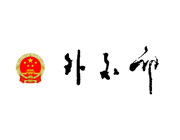


African Members of FOCAC
- Algeria
- Angola
- Benin
- Botswana
- Burkina Faso
- Burundi
- Cabo Verde
- Cameroon
- Central Africa
- Chad
- Comoros
- Congo
- Cote d'Ivoire
- Congo(Kinshasa)
- Djibouti
- Egypt
- Equatorial Guinea
- Eritrea
- Ethiopia
- Gabon
- Gambia
- Ghana
- Guinea
- Guinea-Bissau
- Kenya
- Lesotho
- Liberia
- Libya
- Madagascar
- Malawi
- Mali
- Mauritania
- Mauritius
- Morocco
- Mozambique
- Namibia
- Niger
- Nigeria
- Rwanda
- Sao Tome and Principe
- Senegal
- Seychelles
- Sierra Leone
- Somalia
- South Africa
- South Sudan
- Sudan
- Tanzania
- Togo
- Tunisia
- Uganda
- Zambia
- Zimbabwe
- The Commission of the African Union
Benin
(Updated February 2018)
【Official Name】Republic of Benin
【Area】112, 622 k㎡
【Population】11.2 million. Over 60 ethnic groups live in the country, and Fon, Aja, Yoruba, Bariba, Ottamari and Fula are the major ones. French is the official language. Fon, Yoruba and Bariba are commonly spoken. 60% of the population practice local traditional religions, 20% are Christian and 15% are Muslim.
【Capital】Porto-Novo, where the national legislature sits, has a population of 270,000. Cotonou is the seat of government and has a population of 790,000.
【Head of State】President Patrice Guillaume Athanase Talon was elected as President of the Republic of Benin in March 2016 and assumed office in April 2016.
【Holiday】Independence Day(1 August).
【Geography and Climate】Benin lies in the central south of West Africa, bordered by Nigeria to the east, Burkina Faso and Niger to the northwest and northeast, Togo to the west and the Atlantic Ocean to the south with a coastline of 125 km. Coastal plains have a tropical rainforest climate and the average temperature is between 20 to 34℃. Highest temperature can reach 42℃. Central and northern parts have a tropical savanna climate with an average annual temperature of 26 to 27℃.




